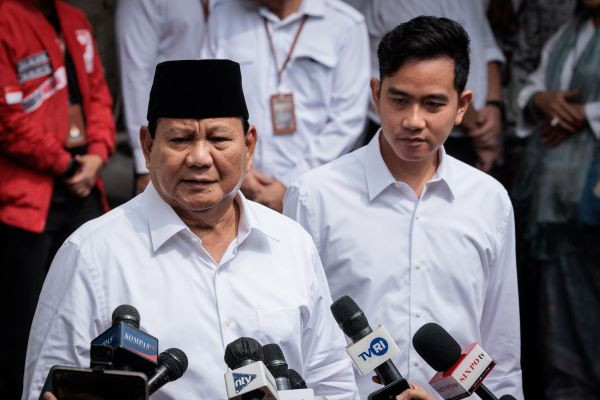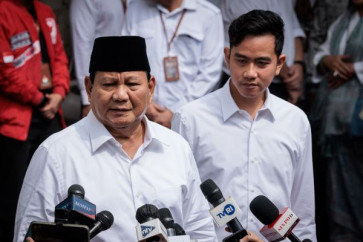Popular Reads
Top Results
Can't find what you're looking for?
View all search resultsPopular Reads
Top Results
Can't find what you're looking for?
View all search resultsThe dangers of patronage in Indonesian democracy
When political leaders prioritize loyalty over merit, it leads to the appointment of unqualified individuals to key positions within government agencies, the judiciary, and state-owned enterprises.
Change text size
Gift Premium Articles
to Anyone
I
ndonesia, the world's third-largest democracy, has made significant strides in its democratic evolution since the fall of Soeharto's authoritarian regime in 1998. However, the persistence of patronage politics poses a significant threat to the consolidation of its democratic system.
Patronage, a practice where political leaders distribute resources, favors or opportunities in exchange for political support, undermines democratic principles by entrenching corruption, weakening institutions and distorting the political process.
Patronage politics in Indonesia is nothing new and deeply rooted in its history. During the New Order era under Soeharto, a complex system of patron-client relationships was established, with the president at the center. This system allowed Soeharto to maintain control by distributing resources to loyal supporters, creating a network of dependents who were bound to him for their survival and success.
Although Indonesia has transitioned to a more democratic system, these patterns of patronage have persisted and evolved, permeating various levels of government and political parties. One of the most visible dangers of patronage is its close relationship with corruption.
Patronage creates opportunities for politicians to misuse public funds to secure political support, whether through vote-buying, nepotism or kickbacks. In Indonesia, corruption cases often reveal networks of patronage where local elites, bureaucrats and business interests are intertwined in mutually beneficial relationships.
These practices erode public trust in government institutions and contribute to a culture of impunity, where accountability is sacrificed for political expediency.
The Corruption Eradication Commission (KPK) has made significant efforts to combat corruption in Indonesia, but its work has been hampered by the very system it seeks to reform. Politicians with vested interests in maintaining patronage networks have repeatedly sought to weaken the KPK’s powers, illustrating how deeply entrenched these practices are in the political landscape.



















